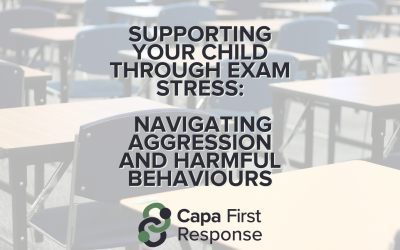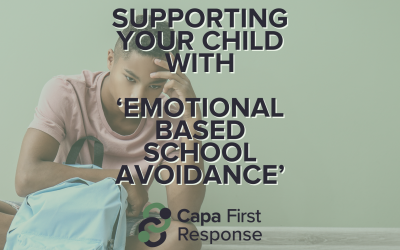Child and adolescent to parent abuse (CAPA) is a serious issue that affects many families, the world over. However, when discussing CAPA, the language we use can be just as important as the actions we take.
The phrase that is used to term this issue is ‘Child or Adolescent to Parent Violence and Abuse’ or CAPVA, which can be a real barrier and sometimes more damaging to those who hear it, or are experiencing it – not to mention to the child being ‘accused’ of the behaviour by this term.
Why is ‘Abuse’ Problematic?
Using the word “abuse” to describe CAPA can be problematic because it can be misunderstood or misconstrued by parents and children alike. Typically, when we hear the word “abuse,” we think of a parent or caregiver who is physically or emotionally hurting a child or domestic abuse. CAPA is a different type of behaviour, as it involves children who are using either verbally or physically harmful and/or aggressive behaviour towards a parent/s or caregiver..
Calling the behaviours being experienced “abuse” can also make parents or carers feel ashamed or embarrassed about their situation. They may feel that they are somehow responsible for their child’s behaviour, and that by calling it “abuse,” they are admitting that they have failed as a parent. We know that this can prevent people from seeking help or support, as they may not want to acknowledge the problem publicly.
Using the term “abuse” can also be damaging to children who are using these behaviours. They can get directed to the wrong services for support and labelled as a ‘perpetrator’. This labelling can make it harder for them to seek help or make positive changes.
It continues the narrative that they are an ‘abuser’ or ‘perpetrator ’ often enabling the child to continue using these tactics to get their needs met.
As a society we have come to recognise abuse and a set of behaviours that sets this behaviour out in very criminal terms, and rightly so when this involves adult protagonists However, when we look at children there is a sense that they have agency around the behaviour and we often talk to families around children ot lying in bed wondering how they can ‘screw’ their parents or caregivers lives up that day. In most cases children and adolescents do not know what language to use or how to get their needs met so use this challenging behaviour to externalise the frustrations they are experiencing
Which words or phrases can we use instead?
Instead of using the term “abuse” to describe CAPA, it may be more helpful to use a different term that more accurately describes the situation. For example, some people use the term “family violence” or “family conflict” to describe CAPA. These terms acknowledge that there is a problem within the family, but they do not carry the same negative connotations as the word “abuse.”
Here at Capa First Response we’ve been talking a lot within our team about using “abuse” less and choosing phrases like ‘explosive behaviour’ and ‘harmful or aggressive actions’. We feel like these terms still portray what is happening within the families who seek our support and help, families feel they can connect more with these terms and it takes away barriers for families to seek support.
Ultimately, the language we use when discussing CAPA can have a significant impact on how parents and children view their situation. By using different words and phrases, we can help to reduce stigma and encourage parents and children to seek the help they need to start living a more harmonious family life.
If you or someone you know is experiencing behaviours that we’ve talked about then please do seek support from us. We can help you work through the issues being experienced in your family and develop strategies for managing the behaviour. Find out how we support families here.



0 Comments